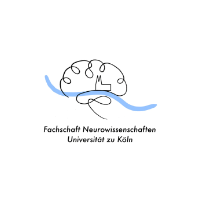AM-8(a) - Sensory Systems
This course takes place as a block during the lecture period. In addition to lectures, there will also be several practical sessions, where you will be introduced to methodologies around the topic of "auditory system", which you may also try out and "experience" yourself. The course ends with a term paper, which should be about 6 pages long.
AM-8(b) - Neuroethics
In this course there are lectures once a week (usually on Monday mornings). You will receive theoretical knowledge, but you will also have a lot of time to discuss the presented topics in the group. You also have a say in the choice of topics for the lectures: If you are interested in certain (ethical) questions or topics, it is usually no problem to cover them in a lecture hour. If a topic interests you even more, you can finally make it the topic of your term paper for this course. This should be about 6 pages long. Note, however, that the structure of a paper on an ethical issue is different from the structure of a paper on a scientific issue. But don't worry: The structure will be explained to you beforehand. Usually you will also organize one (or two) extra appointments towards the end of the course, where you can give small talks on your topic to discuss your perspectives for the term paper with the others (which can be extremely helpful to see new perspectives).
AM-10(a) - Animal Models in Neuroscientific Research
This course consists of two parts: One in the summer semester and one in the winter semester. In the winter semester, two seminars will be held in which knowledge about the validity of animal models will be presented. The goal is that you will be able to critically examine and reflect on studies that use animal models. You will have to present this in a small report (which is one of the exams) as an example for a given study.
In summer the practical part follows, in which you conduct behavioral experiments with rats. You will plan these experiments in detail beforehand and evaluate them yourself afterwards. You will then present the results of the experiments in a scientific paper. You will write this paper in groups. The course is also a block course of several weeks and usually overlaps with the big 12CP courses of the Faculty of Mathematics and Natural Sciences in the second half of the summer semester!
AM-11(a) - Molecular Neuroimmunology
AM-11(b) - Clinical Neuroscience I
This course takes place weekly (usually on Monday evenings) and consists of lectures. These are held by a different person each time and deal with different aspects around the topic. However, the main focus is on psychiatric disorders such as schizophrenia, autism as well as machine learning and pradiction research. In each lesson, a student presents a study on the respective topic of the lesson. This presentation is the exam for the module. In principle, the course is similar to "AM-6(a) Neuroimaging". It is also important to know that you can take the courses Clinical Neuroscience I and II in any order, because they are independent of each other and do not build on each other.
AM-11(c) - Clinical Neuroscience II
In contrast to "Clinical Neuroscience II", this course is organized in a block. Thematically, the lectures focus on psychiatric and mental illnesses in children and adolescents. In the lectures not only background knowledge is presented, but also current research and clinical care. As a rule, you can choose the exam you want to take: Either you present one of the diseases treated in the course at a presentation in the clinic in front of children and adolescents or you produce a children's book that deals with the disease. It is also important to know that you can take the courses Clinical Neuroscience I and II in any order, because they are independent of each other and do not build on each other.
